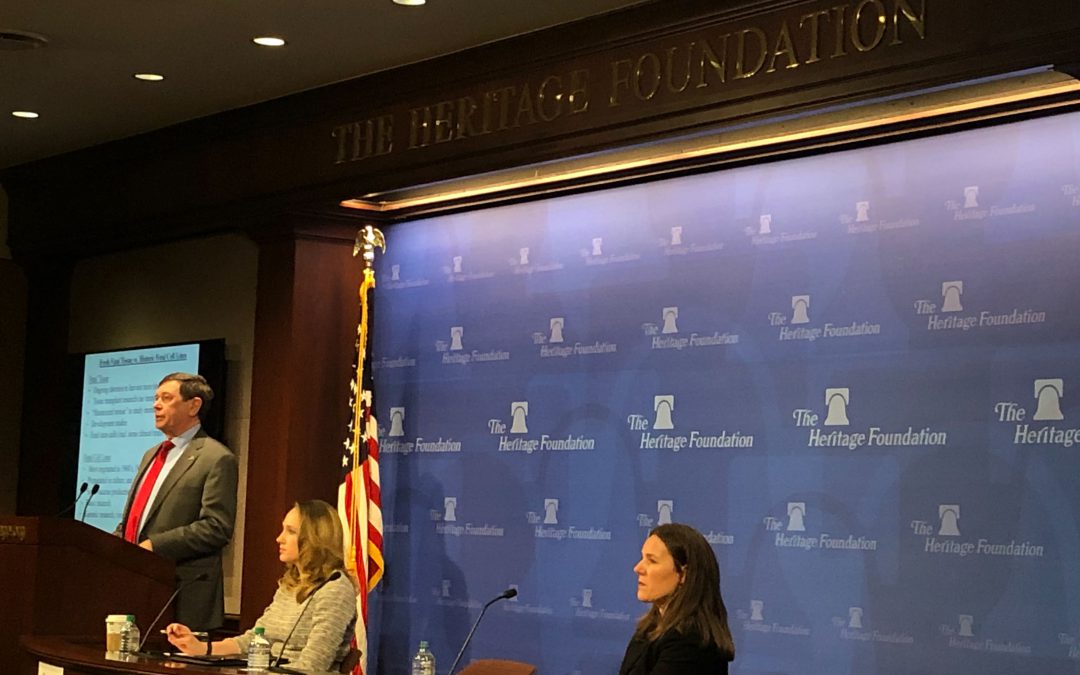WASHINGTON — Fetal tissue is not as effective as cell lines obtained through various alternative methods such as using placenta tissue or stem cells from pregnant women, experts from the anti-abortion Charlotte Lozier Institute said Tuesday.
David Prentice, vice president and research director of the Charlotte Lozier Institute, said people misunderstand the usefulness of fetal tissue, for instance, to produce vaccines. As an example, he noted that fetal tissue was not used for the polio vaccine; instead scientists used cell lines to create the vaccine.
Prentice also highlighted the ineffectiveness of fetal tissue with examples of early attempts to fetal tissue transplant.
“In terms of transplantation, the first recorded instance I could find of any fetal tissue transplantation occurred in the UK in 1921, Italy in 1928 and the US in 1939,” he said. “All of these failed.”
As alternatives to fetal tissue, researchers could use stem cells from bone marrow, already used to treat cancer, or from pregnant women, Institute Associate Scholar Tara Sander Lee said.
“When a woman delivers a baby, the placenta, the umbilical cord, the umbilical blood, and the amniotic fluid are all precious resources that are normally discarded,” said Sander Lee. “But now researchers are understanding these contain valuable stem cells that can be used for research.”
According to Sander Lee, there are questions about the ethics of using federal funds to buy fetal tissue. In September, The Hill newspaper reported that the Department of Health and Human Services terminated its $16,000 fetal tissue supply contract with Advanced Bioscience Resources because of questions about whether the firm had appropriate consent procedures, among other issues.
Sander Lee said the government researchers should utilize fetal tissue that comes from miscarriages.
HHS issued a statement saying it “is continuing to review whether adequate alternatives exist to the use of human fetal tissue in HHS funded research.” Although the department has said it is open to alternatives, anti-abortion advocates are demanding an end to funding any research that uses fetal tissue.
March for Life is demanding that the head of the National Institutes of Health be removed. Nearly $100 million of its research projects in the last fiscal year used fetal tissue.
In an email statement, NIH stood by its use of fetal tissue for research.
“Human fetal tissue offers researchers important new approaches to study both typical and atypical processes in early development, pathogenesis of infectious diseases, and advance our understanding of a wide range of conditions and develop treatments,” NIH said.

